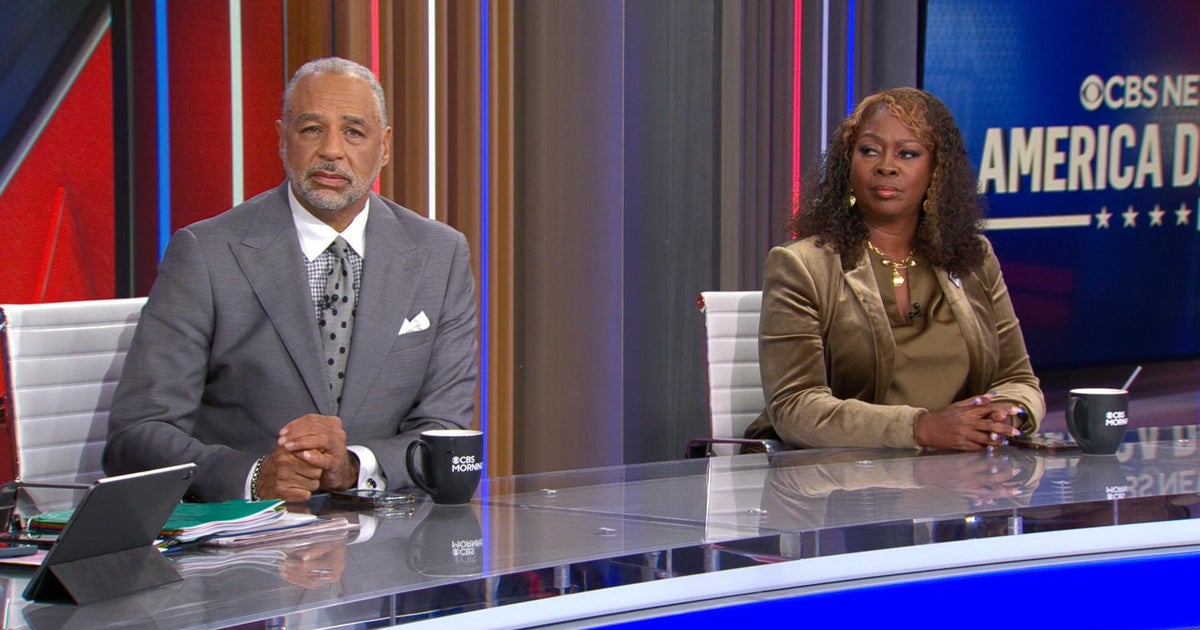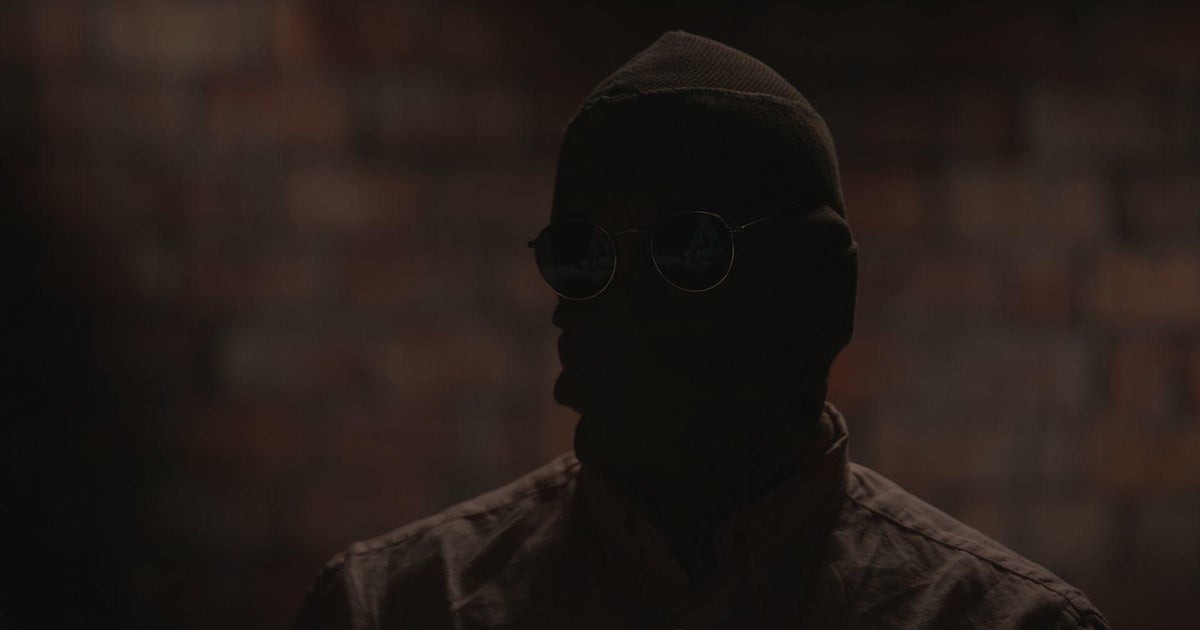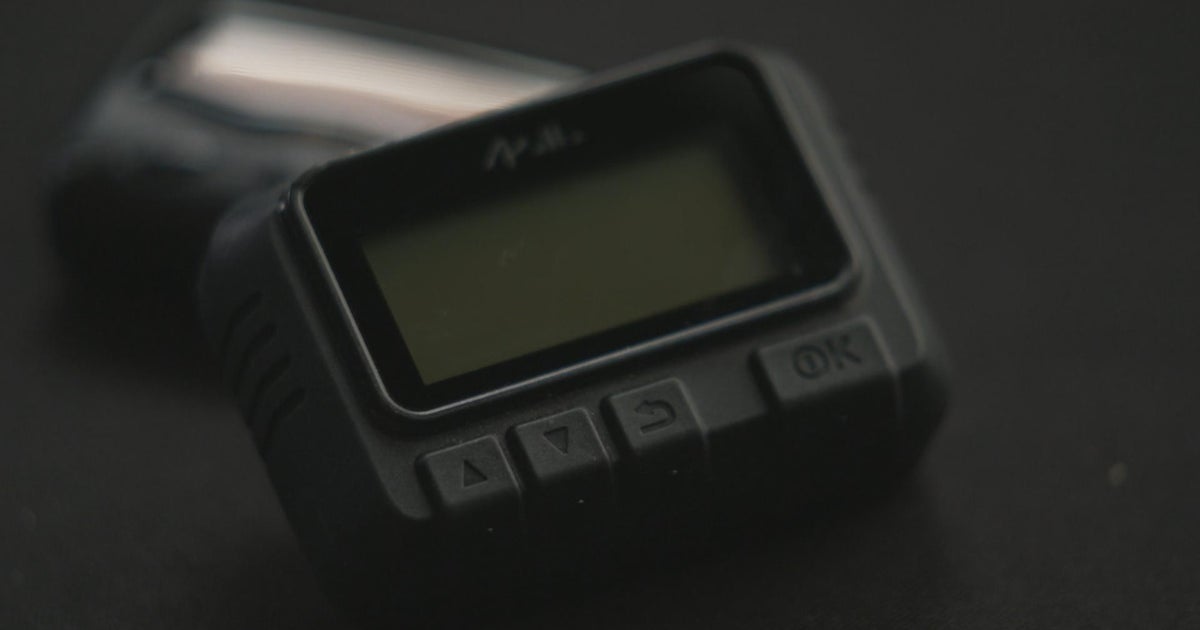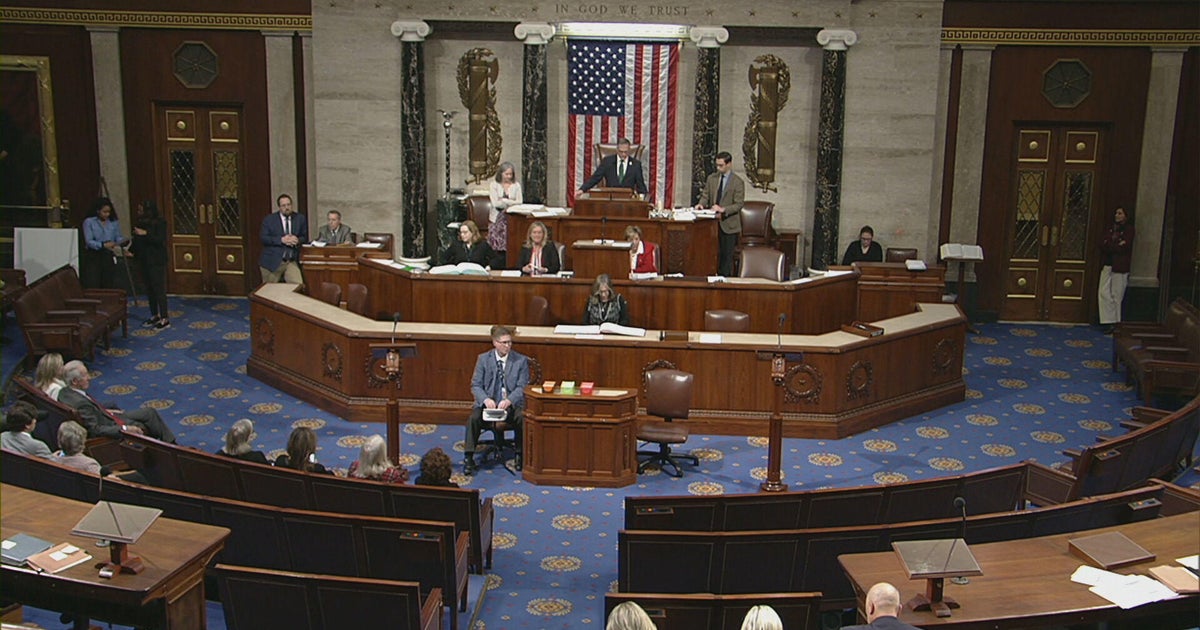CBS News
How Black voter turnout could impact race as Harris and Trump vie for support

Watch CBS News
Be the first to know
Get browser notifications for breaking news, live events, and exclusive reporting.
CBS News
Mexico’s legal battle against the U.S. gun industry | 60 Minutes

Watch CBS News
Be the first to know
Get browser notifications for breaking news, live events, and exclusive reporting.
CBS News
Inside Israel’s plot to deliver explosive pagers to Hezbollah terrorists | 60 Minutes

On Sept. 17, after Israel and the terrorist organization Hezbollah had been in an escalating war for nearly a year, the Israeli spy agency Mossad launched one of the most daring and sophisticated deceptions in the history of counterintelligence: the pager plot, a modern take on the Trojan horse. Mossad created a bomb in a pocket – and tricked Hezbollah fighters into unwittingly wearing these devices on their bodies.
The repercussions of the plot have been dramatic, including aiding in the fall of the Assad regime in Syria, the weakening of Iran, and the decimating of the target of the plot: Hezbollah.
We spoke with two recently retired senior Mossad agents with leading roles in the operation. To hide their identities, we agreed they could wear a mask and have their voices altered. We started with Michael, not his real name.
Lesley Stahl: You were something called a case officer. What exactly is a case officer?
Michael: A case officer spearheads the operation. He is the commander of the operation.
The operation started 10 years ago. Not with pagers, but with weaponizing walkie-talkies.
Michael: A walkie-talkie was a weapon just like a bullet or a missile or a mortar.
Lesley Stahl: So a walkie-talkie bomb?
Michael: A walkie-talkie bomb. Inside the battery, there is an explosive device.
Lesley Stahl: And that was the invention? To put an explosive device that couldn’t be detected into the battery?
Michael: Correct. Made in Israel.
Lesley Stahl: At Mossad?
Michael: Yes.
60 Minutes
Lesley Stahl: As I understand it, these walkie-talkies went into a tactical vest that a soldier would put on, and then this would go in the pocket.
Michael: Correct.
Lesley Stahl: Near the heart.
Michael: Yes.
Lesley Stahl: So Israel sold this device to Hezbollah. Hezbollah paid for the– this weapon that was to be used against them.
Michael: They got a good price.
A “good price” that couldn’t be too low or they’d be suspicious. In the end, Hezbollah bought over 16,000 of these exploding walkie-talkies that Israel then didn’t activate for 10 years, until three months ago.
Lesley Stahl: How did you convince Hezbollah to buy this?
Michael: Well obviously they didn’t know that they were buying it from Israel.
Lesley Stahl: Who did they buy it from or think they were buying it from?
Michael: We have an incredible array of possibilities of creating foreign companies that have no way being traced back to Israel. Shell companies over shell companies to affect the supply chain to our favor. We create a pretend world. We are a global production company. We write the screenplay, we’re the directors, we’re the producers, we’re the main actors, and the world is our stage.
This is Mossad’s old office. Its motto, from Proverbs 24:6, says in so many words: wage war through deception and trickery –- kind of like the CIA’s “smoke and mirrors” — which is what this operation was all about, starting with those walkie-talkies. But walkie-talkies are only worn in battle, so Mossad began developing a new device, that Hezbollah fighters would have in their pockets all the time: a pager.
Gabriel: A pager is almost obsolete around the world, but Hezbollah still using it.
This is Gabriel – not his real name or voice. In 2022, he and his team started developing the second phase of the operation: the booby-trapped pagers. He found out that Hezbollah was buying pagers from this company in Taiwan, called Gold Apollo.
Lesley Stahl: This is the pager that– Hezbollah was using so it’s very sleek. It’s very shiny. And it certainly can fit in a pocket. So what did you do to change this to make it into a bomb?
Gabriel: So to make it into a bomb, we have to enlarge it a little bit.
In order to put explosives inside. But not too much. Using dummies, Mossad conducted tests with the pager in a padded glove to calibrate the grams of explosive needed to be just enough to hurt the fighter — but not the person next to him.
60 Minutes
Gabriel: If we push the button the only one that will get injured is the terrorist himself. Even if his wife or his daughter will be just next to him, he’s the only one that’s going to be harmed.
Lesley Stahl: Did you test for that?
Gabriel: Yes. We test everything triple, double, multiple times in order to make sure there is minimum damage.
Lesley Stahl: Could you use it as a tracking device? Did it have intelligence capability?
Gabriel: Oh, no. This is a very stupid device by nature. This is the reason they’re using it. There’s almost no way how to tap it. It’s only receiving messages and– several grams of explosive.
Mossad also tested these ringtones to find a sound urgent enough to compel someone to take it out of their pocket. And they tested how long it takes a person to answer a pager: on average seven seconds. But how to convince Hezbollah to switch to this bulkier pager?
Gabriel: I remember the day that I came to our director put it on the table. And he was furious, he was telling us, “There is no chance that anyone will buy such a big device. It’s not comfortable in their pocket. It’s heavy.”
Lesley Stahl: Very heavy.
Gabriel: “Very heavy. It’s no good, go back and bring me something else.” It took me two weeks to convince him that although it’s ugly, it has character.
Character meaning added features, which they touted in fake ads on YouTube.
Robust. Dustproof. Waterproof. Long battery life.
Gabriel: We make advertising movies and brochures, and we put it on internet. And– it become– the best product in the beeper area in the world.
Lesley Stahl: Did people other than Hezbollah want to buy this based on what was being said about it online?
Gabriel: Yes. We received several request from regular potential customer. Obviously we didn’t send to anyone. We just quote them with expensive price.
Mossad wanted to use the name “Gold Apollo” on its pager. So it set up shell companies, including one in this building in Hungary, to dupe the Taiwanese into partnering with them.
Lesley Stahl: So the company in Taiwan, Gold Apollo, did they know that they were working with people from Mossad?
Gabriel: Gold Apollo had zero clue that they are working with the Mossad.
And neither did Hezbollah.
Gabriel: When they are buying from us, they have zero clue that they are buying from the Mossad. We make like “Truman Show,” everything is controlled by us behind the scene. In their experience, everything is normal. Everything was 100% kosher including businessman, marketing, engineers, showroom, everything.
60 Minutes
To further the plot, Mossad hired the Gold Apollo saleswoman Hezbollah was used to working with before. She offered them the first batch of pagers as an upgrade “free of charge.” By September 2024, Hezbollah had 5,000 pagers in their pockets.
The question for Israel: when to activate the sleeping bombs? There were hints Hezbollah might be getting suspicious of the devices.
So Mossad head Dadi Barnea gave the go ahead, triggering the attack, and shocking people around the world as it seemed more like a spy movie than reality. On Sept. 17, at 3:30 p.m., pagers started beeping all over Lebanon.
Lesley Stahl: As I understand it, people with this pager got a message that said, “You have an encrypted message.” In order to access it, you have to push the two buttons. Meaning that it would explode in their hands.
Gabriel: That was the whole point.
Lesley Stahl: So if someone did not push the two buttons, what happened?
Gabriel: It’s the same effect. It gonna explode anyway.
Lesley Stahl: The explosive was triggered in Israel?
Gabriel: Yes.
What ensued was mayhem! People with pagers blowing up on the street, on motorcycles, hospitals filling up with the wounded – limbs, fingers torn off, bloodied, blinded, holes in stomachs. For the most part, the explosions worked as planned, they say. Watch the man on the left – those right next to him were unscathed.
The very next day, Mossad finally activated the walkie-talkies that had been dormant for 10 years, some going off at the funerals of those killed by the pagers. All in all, about 30 people died, including two children, around 3,000 were injured.
Gabriel: The aim, it wasn’t killing Hezbollah terrorists. If he just dead, so he’s dead. But if he’s wounded, you have to take him to the hospital, take care of him. You need to invest money and efforts. And those people without hands and eyes are living proof, walking in Lebanon, of “don’t mess with us.” They are walking proof of our superiority all around the Middle East.
Two days after the pager attack, Hezbollah leader Hassan Nasrallah, known for his fiery oratory, gave a subdued speech.
Gabriel: If you look at his eyes, he was defeated. He already lose the war. And his soldier look at him during that speech. And they saw a broken leader. And this was the tipping point of the war. I don’t know if you know that Nasrallah, when we operate the beeper operation, just next to him in the bunker, several people had a beeper receiving the message. And in his in own eyes, he saw them collapsing.
Lesley Stahl: How do you know that?
Gabriel: It’s a strong rumor.
In the ensuing days, the Israeli air force hit targets all across Lebanon, killing over a thousand, many of them civilians. On Sept. 27, it dropped massive bombs on Nasrallah’s bunker, assassinating him. Two months later, after more Israeli strikes over Lebanon and more civilian deaths, the war between Israel and Hezbollah ended with a ceasefire.
Lesley Stahl: Did you completely destroy and crush Hezbollah?
Gabriel: I think it’s a big question. And I think the honest answer will be no. But I think after this tipping point of the beeper operation and the walkie-talkie and then IDF attack, put Hezbollah in a very, very difficult situation, no chain of command, no spirit in their soldiers, asking, begging, for a ceasefire.
Lesley Stahl: So you restore your sense of superiority, but what about your moral reputation? Don’t you think Israel has to worry about its reputation?
Gabriel: Definitely. But there is a prioritization. First, you have to defense your people not being killed by the thousands. And then the reputation.
The pagers have had a profound rippling effect: severely weakening Iran by leaving its proxy empire in ruins with Hezbollah shattered in Lebanon, Assad toppled in Syria. We asked agent Michael about the effect on Gaza.
Lesley Stahl: How does that affect the situation with Hamas?
Michael: The wind was taken out of Hezbollah’s fight after the pager operation. And I’m hoping that it will have an effect also on the Hamas and hostage situation, because they’re looking at their sides and they’re seeing no one next to them. They are completely isolated now.
Lesley Stahl: In terms of the kind of warfare that was conducted with the walkie-talkies and the pagers, would you call it a psychological war?
Michael: The day after the pagers exploded, people were afraid to turn on the air conditioners in Lebanon because they were afraid that they would explode. So there was– there is real fear.
Lesley Stahl: Was that an intention?
Michael: We want them to feel vulnerable, which they are. We can’t use the pagers again because we already did that. We’ve already moved on to the next thing. And they’ll have to keep on trying to guess what the next thing is.
Produced by Shachar Bar-On. Associate producer, Jinsol Jung. Broadcast associate, Aria Ee. Edited by Matthew Lev.
CBS News
Israel’s Mossad spent years orchestrating Hezbollah pager plot | 60 Minutes

After nearly a year of war between Israel and the Iranian-backed terrorist group Hezbollah, Lebanon was sent reeling in September when thousands of pagers and walkie-talkies belonging to Hezbollah members exploded.
Two recently retired senior Mossad agents, who were among those spearheading the years-long operation, detailed the inside story of how they built the devices and got them into Hezbollah hands, shifting the course of Israel’s escalating war with the Iran-backed group. The walkie-talkie and pager plots had a profound ripple effect: weakening Iran by leaving its proxy empire in ruins, with Hezbollah crushed in Lebanon and the Assad regime toppled in Syria.
“We want them to feel vulnerable, which they are,” said Michael, who agreed to speak with 60 Minutes while masked and using a false name. “We can’t use the pagers again because we already did that. We’ve already moved on to the next thing. And they’ll have to keep on trying to guess what the next thing is.”
Weaponizing walkie-talkies
Mossad’s walkie-talkie operation was about waging war through deception and trickery, in line with the spy agency’s motto. Work began on weaponizing the walkie-talkies more than a decade before Israel set them off in September.
“The walkie-talkie was a weapon, just like a bullet or a missile or a mortar,” Michael said.
60 Minutes
The walkie-talkie battery, made in Israel at a Mossad facility, included an explosive device, Michael disclosed. The walkie-talkies were designed to go into the chest pocket of a tactical vest for soldiers.
According to Michael, Hezbollah bought more than 16,000 of the exploding devices, some of which were eventually used against them on Sept. 18.
“They got a good price,” Michael said.
The price couldn’t be too low because Israel didn’t want Hezbollah to be suspicious. Mossad also needed to hide its identity as the seller and ensure the walkie-talkies couldn’t be traced back to Israel. So they set up shell companies to infiltrate the supply chain.
“We create a pretend world. We are a global production company: We write the screenplay, we’re the directors, we’re the producers, we’re the main actors,” Michael said. “And the world is our stage.”
From walkie-talkies to pagers
The walkie-talkies were designed to go into armored tactical vests used in battle, but Mossad wanted to plant devices that Hezbollah members would have on them at all times. So, in 2022, the agency began development on boobytrapped pagers, according to former Mossad agent Gabriel, who agreed to speak with 60 Minutes while masked and using a false name. Gabriel said Mossad had learned that Hezbollah was buying pagers from Gold Apollo, a company in Taiwan.
The Gold Apollo pagers were sleek, shiny and could fit into pockets. Mossad needed a larger pager to fit explosives inside, Gabriel said.
60 Minutes
Using dummies, Mossad conducted tests with the pager inside a padded glove, held next to the dummy’s face, to calibrate the grams of powdered explosive needed to be just enough to hurt the fighter, but not the person next to him, Gabriel said. The plan was to only hurt Hezbollah members with pagers, not people nearby.
“We test everything, triple, double, multiple times in order to make sure there is minimum damage,” Gabriel said.
The devices had no intelligence capabilities and could not be used for tracking, according to Mossad. They could only be be used as miniature bombs.
“This is a very stupid device by nature. This is the reason they’re using it. There’s almost no way how to tap it,” Gabriel said.
Mossad also tested the pager ring tones. They wanted a sound that was urgent enough to compel someone to take it out of their pocket, Gabriel explained. The spy agency also tested how long it takes a person to answer a pager: on average, 7 seconds.
Convincing Hezbollah to buy the pagers
Gabriel remembers the day he showed the pager off to Dadi Barnea, the director at Mossad.
“And he was furious,” Gabriel said. “He was telling us, ‘There is no chance that anyone will buy such a big device. It’s not comfortable in their pocket. It’s heavy.'”
The director sent Gabriel back to the drawing board, but Gabriel spent the next two weeks successfully convincing his boss of the pager’s merits.
Those merits were later touted in fake ads on YouTube, where the pagers were touted as being robust, dustproof and waterproof, with a long battery life. They posted fake online testimonials, too.
“It became the best product in the beeper area in the world,” Gabriel said.
60 Minutes
Mossad did such a good job promoting the pager that people outside of Hezbollah wanted to buy it, Gabriel said.
“Obviously we didn’t send to anyone,” he said. “We just quote them with expensive price.”
Mossad set up shell companies, including one in Hungary, to dupe Gold Apollo into working with it, Gabriel said. The spy agency fully manufactured the pagers and had a licensing partnership with Gold Apollo. It had to all look legitimate to Hezbollah.
“When they are buying from us, they have zero clue that they are buying from the Mossad. We make like the ‘Truman Show,’ everything is controlled by us behind the scene,” Gabriel said. “In their experience, everything is normal. Everything was 100% kosher.”
To further the plot, Mossad hired the Gold Apollo saleswoman Hezbollah was used to working with, who was unaware she was working with Mossad. According to Gabriel, she offered Hezbollah the first batch of pagers as an upgrade, free of charge. By September 2024, Hezbollah had about 5,000 pagers in their pockets.
Setting off the pagers and walkie talkies
The question for Israel was when the sleeping bombs should be activated. There were hints Hezbollah might be getting suspicious of the devices, so Mossad head Dadi Barnea gave the go ahead, triggering the Sept. 17 pager plot. At 3:30 p.m. pagers started beeping all over Lebanon.
Mayhem ensued as explosions went off. Hospitals filled up with the wounded. Limbs and fingers were torn off. People were left blooded, blinded and even with holes in their stomachs. For the most part, the explosions worked as planned, injuring only the people with the pagers, the former Mossad agents said. Several videos reviewed by 60 Minutes show explosions wounding individual people, while leaving those next to them unscathed.
“A day after the pagers exploded, people were afraid to turn on the air conditioners in Lebanon because they were afraid that they would explode,” Michael said. “So there was real fear.”
One day after the pager attack, Mossad finally activated the walkie-talkies that had been dormant for 10 years. Some went off at the funerals of those killed by the pagers.
In all, about 30 people were killed, including two children, in the two attacks. Around 3,000 were injured.
Did Mossad’s plan succeed?
The aim of the walkie-talkie and pager plot wasn’t to kill people, Gabriel said.
“If he’s just dead, so he’s dead,” Gabriel said. “But if he [is] wounded, you have to take him to the hospital, take care of him. You need to invest money and effort. And those people without hands and eyes are living proof, walking in Lebanon, of ‘don’t mess with us.'”
Two days after the pager attack, Hezbollah leader Hassan Nasrallah, known for his fiery oratory, gave a subdued speech. He looked defeated, Gabriel said.
“He already lose the war. And his soldier look at him during that speech. And they saw a broken leader,” Gabriel said. “This was the tipping point of the war.”
In the ensuing days, the Israeli Air Force hit targets across Lebanon, killing over 1,000 people, many of them civilians. On Sept. 27, Israel dropped massive bombs on Nasrallah’s bunker, assassinating him. The Israel-Hezbollah ceasefire took effect at the end of November.
“But I think after this tipping point of the beeper operation and then the walkie-talkie and then IDF attack, [it] put Hezbollah in a situation, a very, very difficult situation: no chain of command, no spirit in their soldiers, asking, begging, for a ceasefire,” Gabriel said.
Michael agreed that wind was taken out of Hezbollah’s sails after the pager operation. He’s hoping it will have an effect on Hamas and the hostage situation in Gaza.
“Because they’re looking at their sides and they’re seeing no one next to them,” Michael said. “They are completely isolated now.”











